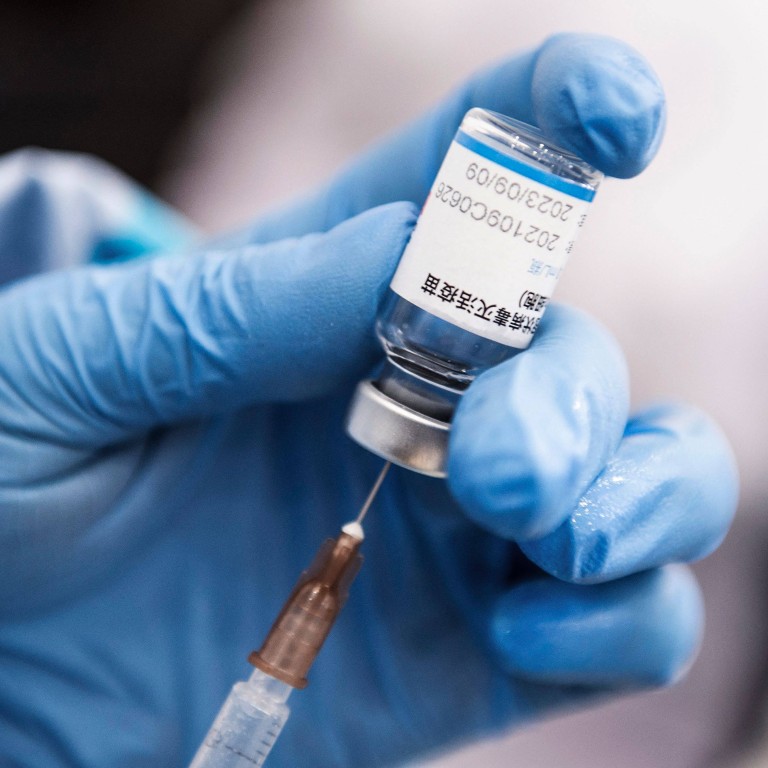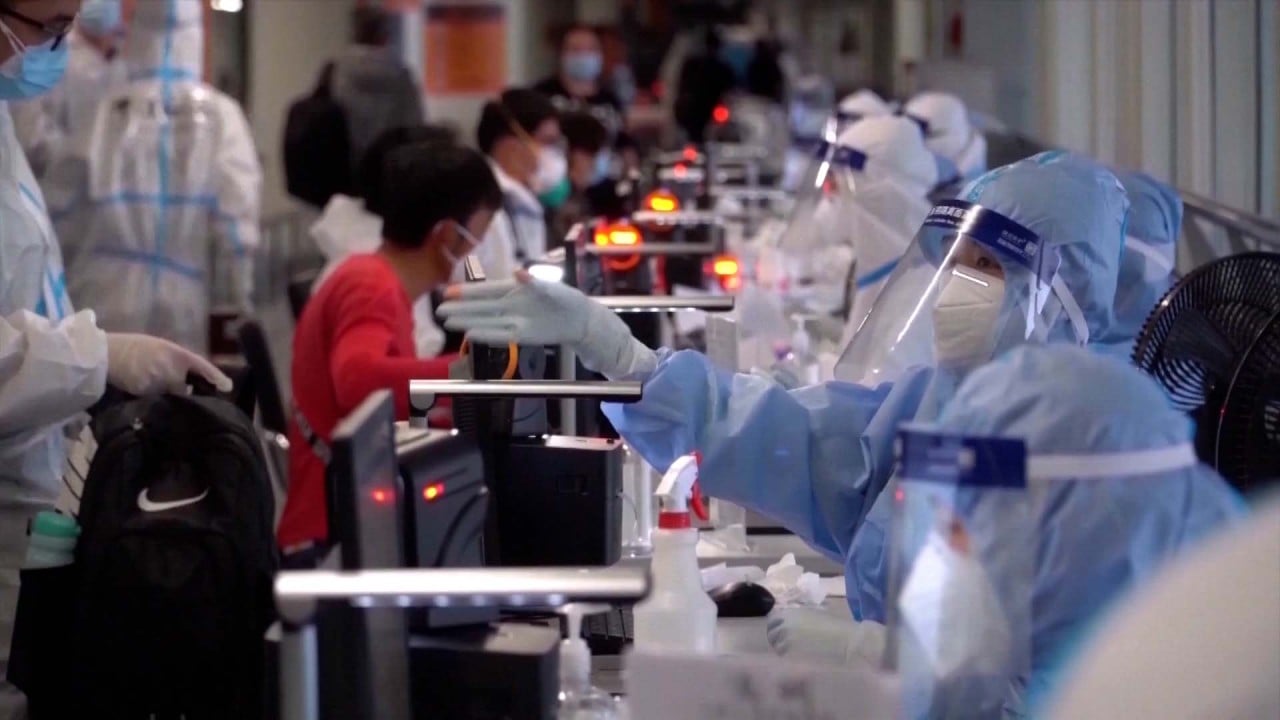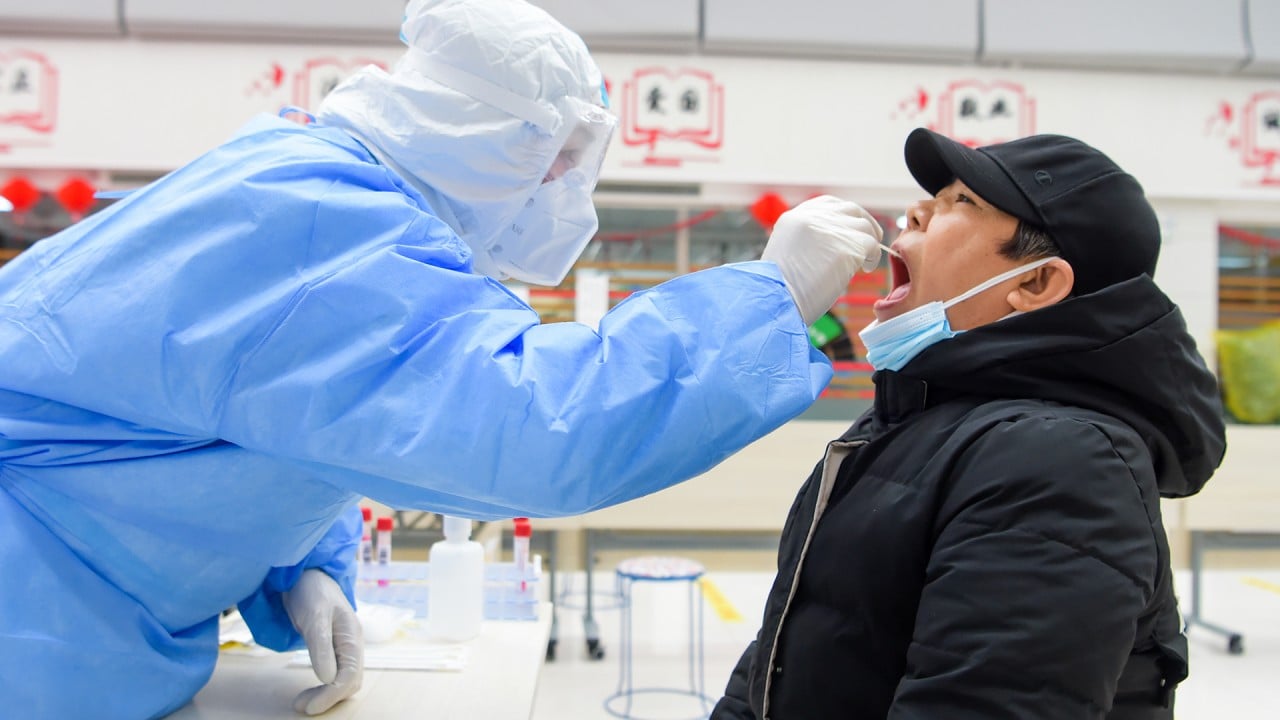
Omicron: 2 doses of Sinopharm vaccine offers weak protection against new strain, finds study
- Researchers from the University of Washington and Humabs BioMed investigated how Omicron might escape immunity from past infections or vaccination
- Research confirms recent studies finding mutations on the receptor-binding domain of the spike protein led to immunity escape against available vaccines
They tested how the plasma worked against a pseudovirus genetically modified to resemble the ancestral and Omicron variants of the virus that causes Covid-19. The results of the study, which were not peer-reviewed, were published on BioRxiv.org.
Results showed the antibody levels of people vaccinated with Sinopharm’s vaccine dropped significantly against Omicron compared with the ancestral, or older, strain and, of the total 13 participants, only three people could be found to produce detectable antibodies that could block the Omicron strain of the virus from entering cells, a process known as “neutralising”.
David Veesler, associate professor at the department of biochemistry at the University of Washington and one of the correspondence authors of the study, said the in vitro studies evaluated plasma neutralising antibodies “which is a correlate of protection against Sars-CoV-2”, the virus that causes Covid-19.
“However, other factors such as T cells [an immune system cell] can play important roles to protect us against pathogens, especially in the absence of neutralising antibodies,” Veesler said.
“It is accurate to say that we could not detect plasma neutralising activity against Omicron in most Sinopharm vaccines. Evaluating vaccine-efficacy in the human population will require epidemiology studies.”
Boosters work, no need for Omicron-specific jabs, says disease expert Fauci
A drop in effectiveness against Omicron was observed in all six vaccines tested, but participants vaccinated with Moderna, Pfizer and AstraZeneca vaccines displayed higher levels of neutralising antibodies against the ancestral strain and, after a 33-44-fold drop they still had detectable neutralising antibodies against the Omicron variant.
Only one out of 12 participants administered with the one-shot Johnson & Johnson was shown to have neutralising activity but none from the 11 subjects injected with the Sputnik vaccine.
Governments around the world are scrambling to offer booster doses to prepare for the potential wave of infections caused by the Omicron variant, which the World Health Organization warns is likely to take over from Delta as the dominant strain in community spread.
Meanwhile, less than a quarter of participants who received two doses of Pfizer could produce antibodies to neutralise Omicron.
Dr Mike Ryan, head of the WHO’s Health Emergency Programme, said on Tuesday that a drop-off in the ability to prevent infection over time was always expected, especially with a mucosal infection such as Covid-19.
“The question is, to what extent do we see any loss in protection beyond neutralising antibodies and looking at other immunologic markers and then looking at the real-world,” he said.
Last week Zhang Yuntao, chief scientist with China National Biotec Group, a subsidiary of Sinopharm which developed the Covid-19 vaccines, said the company had started designing Omicron-specific vaccines in three different technology platforms, although Zhang did not elaborate.
Covax chief warns against replay of Covid-19 vaccine nationalism
The Gamaleya Centre, which developed Russia’s Sputnik V vaccine, said in a statement on Monday that the serum samples used in the study were “not representative” and the centre would publish its own “positive data” in a week.
Johnson & Johnson said last month it was testing blood serum from participants in completed and continuing booster studies to look for neutralising activity against the Omicron variant, and pursuing an Omicron-specific variant vaccine.



